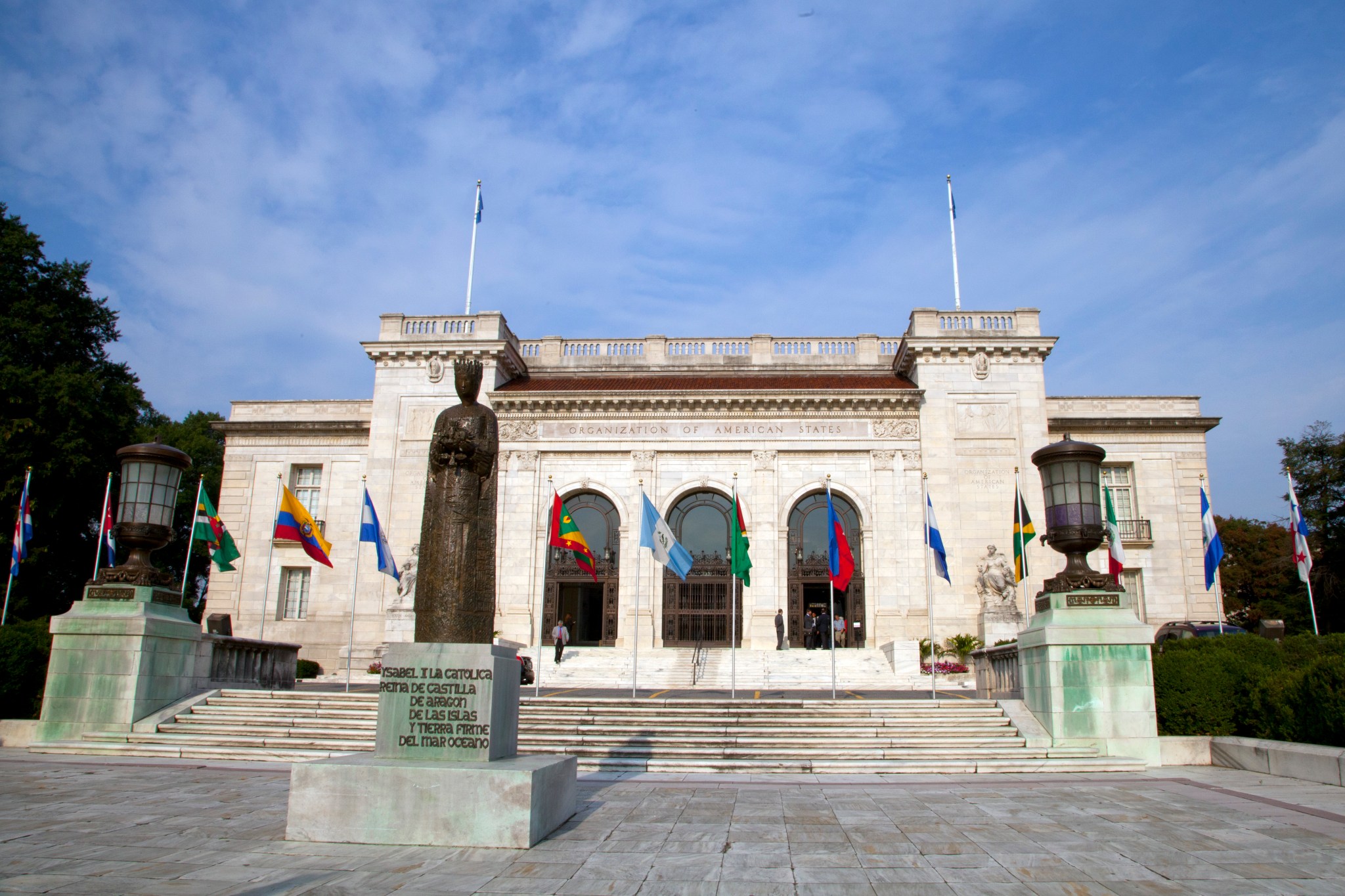
As part of its efforts to shut down citizen protests demanding political reform, the Nicaraguan government has stifled freedom of the press, accused civil society organizations of plotting a coup and arbitrarily detained hundreds of people. A new report by the Organization of American States (OAS) details Nicaraguan government’s human rights abuses and highlights the breakdown of democracy in the country.
In April 2018, the Nicaraguan government launched a violent campaign to shut down citizen protests demanding political reform and the resignation of President Daniel Ortega and Vice President Rosario Murillo, also Nicaragua’s first lady. Since then, the government has continued to violate its citizens’ basic rights by violently suppressing protests, arbitrarily detaining more than 730 political prisoners and even carrying out targeted killings against political activists.
More than 88,000 Nicaraguans now live in exile abroad, mostly in neighboring Costa Rica. Just last week, Nicaraguan police arrested 16 people delivering water and medical supplies to mothers of political prisoners who are carrying out a hunger strike in the city of Masaya.
The international community’s response to these atrocities has been sporadic and divided at best. The United States and the European Union recently levied sanctions against Nicaraguan government officials and their allies. In Latin America, countries such as Costa Rica and Chile have condemned the regime’s violations of human rights, but support for economic sanctions and diplomatic action remains split within the OAS and other regional bodies.
Earlier this year, the OAS Permanent Council created the High-Level Commission on Nicaragua to assess the situation in Nicaragua and provide the organization with a set of actionable recommendations. In response, the Nicaraguan government barred these OAS representatives from entering the country and denounced the Commission as illegitimate. The Commission continued its investigation remotely, including collecting testimonies from a cross-section of Nicaraguans.
The Commission’s report concluded that the ongoing human rights violations and abuses of power by the Ortega regime represent “an unconstitutional alteration of the constitutional regime that seriously impairs the democratic order in Nicaragua.” The Commission’s findings, coupled with its recommendation that the OAS immediately convene a special session to review the matter, creates additional options for multilateral action, including suspending Nicaragua’s OAS membership.
Suspension would not only constitute a major blow to Nicaragua’s diplomatic standing but would also represent a unified effort from the international community to condemn the Ortega regime. In order to suspend a state from the OAS, there must be an “unconstitutional interruption of the democratic order” and “a failure of diplomatic initiatives,” of which the Commission’s report provides ample evidence. Then, two-thirds of OAS member states must vote to suspend Nicaragua. Suspension is extremely rare: only Cuba and Honduras have been suspended during the organization’s 71-year history.
There is precedent for OAS pressure to deliver real results. Following the 2009 military coup in Honduras, the OAS called on member states and international organizations “to review their relations with the Republic of Honduras during the period of the diplomatic initiatives for the restoration of democracy and the rule of law.” As a result, more than $450 million in foreign credits and assistance were frozen. This combination of diplomatic and economic pressure induced the new government to hold elections.
The release of the Commission’s latest report on Nicaragua presents an opportunity to place similar significant diplomatic and economic pressures on the Ortega regime in a more united international response. By voting to suspend Nicaragua from the OAS and advocating for free and fair elections, the international community would significantly increase pressure on Ortega’s government to cease its repression of the Nicaraguan people and return democratic order to the county.
Despite ongoing oppression, Nicaragua’s civil society actors, human rights organizations and local media outlets continue to cover the situation in-country and from exile abroad and advocate for a return to democracy. The international community can and should support these democratic forces by pressuring the Ortega regime to cease its human rights abuses and hold free and fair elections during the 2021 electoral cycle. Without a clear and unified response from the international community, the Ortega regime will continue to repress, imprison, and murder its citizens, while claiming falsely that “in Nicaragua, everything is normal.”
Top